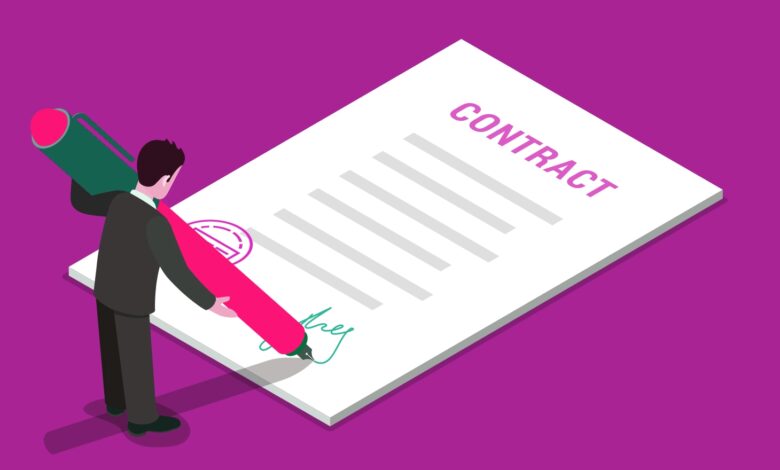Never Sign a Contract Without Knowing These 4 Important Things

Signing a legal document is not something to be taken lightly or carelessly because contracts are one of the most powerful documents in any venture. Contacts can help you either win or lose a case if ever you get embroiled in a legal dispute in the future.
That’s why before affixing that name and signature of yours, make sure that you fully understand what you’re getting into and what’s in it for you in return. Before you sign a contract, make sure that you know these four things:
Read More: Top 7 Legal Documents for Every New Startup
1. Elements of a Valid Contract
For a contract to exist and be enforceable, several elements must be considered. Below are those elements.
Offer
A contract always starts with an offer that a party must present to another party. An offer can be as simple as paying someone in exchange for a product or service. Sometimes, an offer can also be complex that often entails weeks or months of negotiations between the involved parties.
Acceptance
When a party makes an offer, the other party should accept the offer to start the contract. To accept an offer:
- You must know which offer you are agreeing to
- You must know and accept all the terms of the offer
- You must tell the person who made the offer that you are accepting it and the terms that come with it
It’s important to note that an offer and acceptance are not enough to create a valid and enforceable contract. What you have is just an agreement because you still have to consider the succeeding elements.
Consideration
This simply means that benefits for both parties must be included in the contract.
Intention to create legal relations
For a contract to be valid and enforceable, both parties must have the intention to create the agreement legally binding and for the contract to be legally enforceable.
Read More: How to Hire a Good Bankruptcy Lawyer in Staten Island, NY
2. How to Sign a Contract
Signing a contract is not something to be taken lightly. Keep in mind that it’s your name and signature that’s in there and nobody else’s. If anything goes south with the agreement, it’s only you and other involved parties will be responsible for it.
One of the most common causes of contract disputes is that the involved people don’t even take the time to understand the terms of the contract.
That’s why if you’re engaging in an agreement with somebody make sure to do these things before signing the contract:
Read the contract properly.
- Make sure to understand the terms and their legal implications.
- If you honestly don’t understand any or some of the contents of it, seek legal advice.
- Make sure that you are authorized to sign the contract.
- Lastly, if necessary, assign a qualified witness during the signing of the contract.
Every time you are putting your name and signature on a contract, make sure that you take the time to fully understand all of it. Don’t feel pressured or rushed into signing anything unless you’ve done your homework.
If you are unsure about signing a contract, seek legal guidance from an experienced contract lawyer.
3. Different Ways to Sign a Contract
Physically
This is the most common way to sign a contract. You take a pen and affix your signature.
Electronically
Electronic signatures are widely popular now, thanks to the advancement in technology. Digital signatures allow people to get things done without all the hassle of physical execution.
While an electronically signed document bears the same legal effect as a physically signed one, you still need to be cautious as digital signatures are still subject to potential misuse.
The best example of this is the case of Williams Group Australia v Crocker (2016) NSWCA 265. Williams Group Australia advanced a loan, relying on the digital signature of Mr Crocker on the application. However, that same loan application document wasn’t signed by Mr Crocker because it was another party that placed his digital signature on the application without his permission. In the end, Mr Crocker was not held liable for the loan.
Counterparts and execution by facsimile
Aside from electronic signing, this is one of the most effective ways to sign a contract for parties that are just too far from each other.
Execution by counterparts is where both parties execute a separate copy of the contract and then exchange it with the other party’s signed contract via facsimile or fax. The separate copies would be deemed to constitute the original contract.
Execution by a corporation
According to Section 127 of Corporations Act 200, a company can sign a contract either by the company’s common seal or by the signature of its directors.
The more common way is for the company’s directors to sign the contract/s. If the company goes this route, the document must be executed by either of the following:
- Two directors
- A director and a company secretary
- If the company has a sole director, by that director only
If a company signs by using its common seal, the signing must be witnessed by either of the following:
- Two directors
- A director and a company secretary
- If the company has a sole director, by that director only
Read More: What is the Personal Injury Claims Process?
4. Witnessing
The signing of contracts often requires qualified witnesses. And ideally, the witness for the execution of the contract must come from a third party. It is also best practice that the name and signature of the witness be included in the execution clause of the contract.
Seek legal help when necessary
Like we’ve said earlier, you must always seek legal advice from contract lawyers whenever you’re unsure of something about your contract. Never rush your signature on a contract as it may cause you headaches, or worse, a lot of money in the future.












One Comment